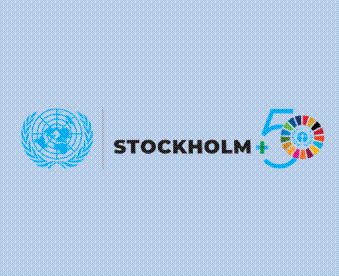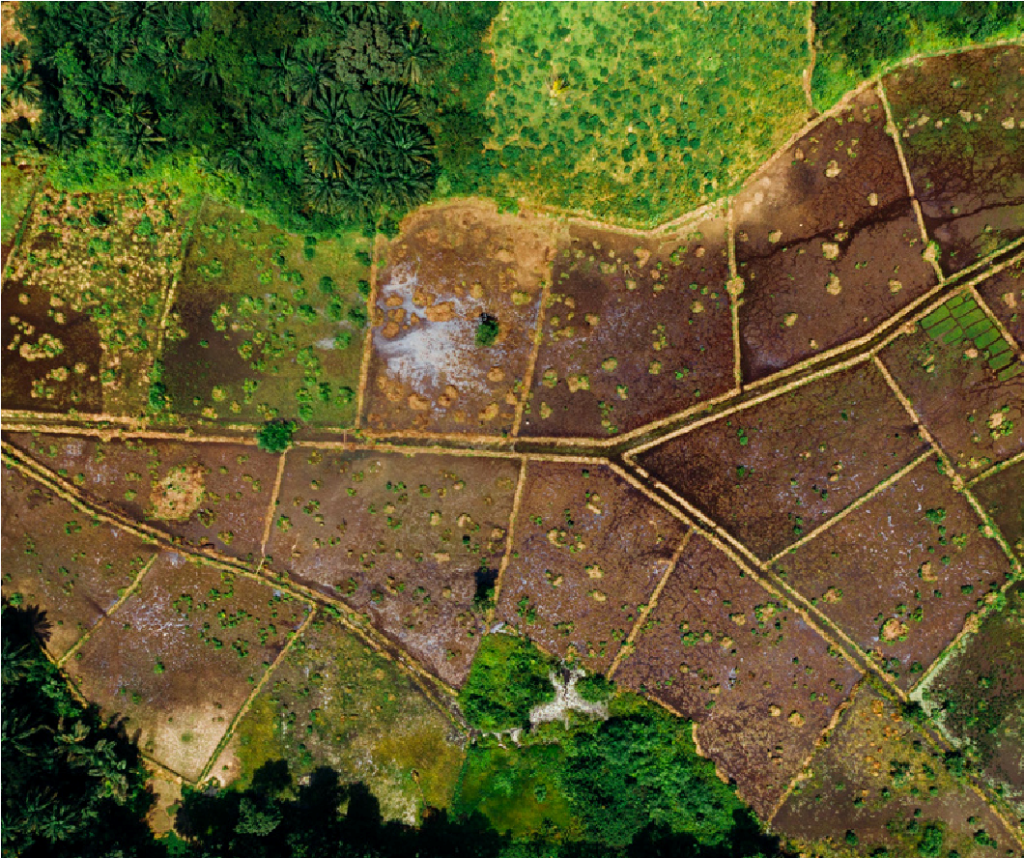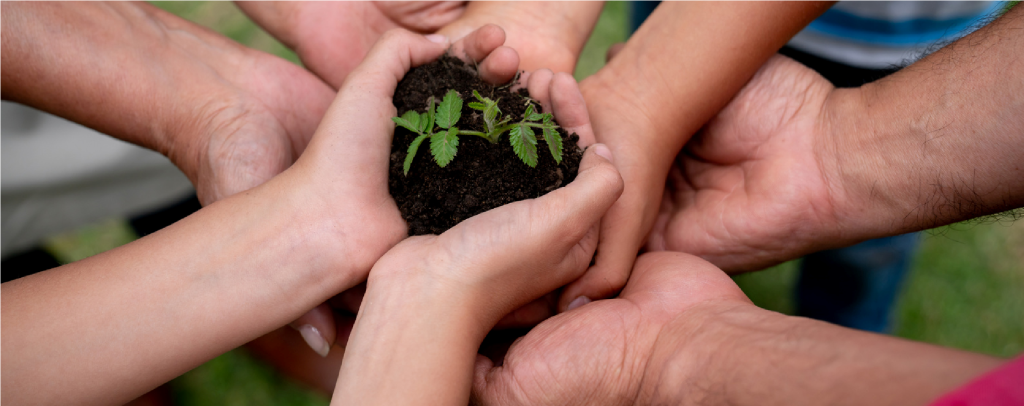
UGM SDG 15 REPORT:
PROMOTE CONSERVATION AND SUSTAINABLE USE OF THE LAND, FORESTS AND WILD LAND
UGM actively endorses and conducts initiatives aimed at advocating conservation and sustainable land use. These efforts involve collaborations with international youth organizations and a variety of inter-faculty events engaging the participation of the academic community, faculty, staff, and alumni. The support extended by alumni enhances the university’s capacity to collaborate with external entities in advancing sustainable land use practices.
IFSA LC UGM
The Local Committee of the International Forestry Students Association at Universitas Gadjah Mada (IFSA LC UGM) actively promotes the conservation of Indonesia’s forests. As an international youth organization centered on forestry and the environment, IFSA LC UGM is non-political, non religious, and non-profit. UGM facilitates the engagement of young individuals in delegations and projects aimed at promoting forest sustainability. Among the various initiatives supporting sustainable land use is the Forestry Awareness Week.
UGM 73rd Anniversary
In celebration of UGM’s 73rd Anniversary, the Faculty of Forestry planted 13 diverse Indonesian plant species in its arboretum. This initiative aims to conserve varied trees from different islands, promote communal tree planting culture, and contribute to climate change mitigation. Additionally, the event included the distribution of the Pocket Book of Waste Management, a guide compiled by the Center for Agrotechnology Innovation (PIAT) at UGM.
Stockholm+50 Environmental Seminar
UGM is hosting the Stockholm+50 Environmental Seminar in organizations, collaboration reflecting with on relevant Indonesia’s environmental situation and projecting future measures. Inspired by the Stockholm Declaration, the seminar underscores the significance of environmental protection.

Fisipol 67th Anniversary
Faculty members and students at UGM’s Faculty of Social and Political Sciences planted 1000 trees at the Getas Special Purpose Forest Area to commemorate the Faculty’s 67th Anniversary, emphasizing their commitment to environmental conservation and addressing climate change.
“MAINTAIN AND EXTEND EXISTING ECOSYSTEMS AND THEIR BIODIVERSITY”
UGM has undertaken multiple forest conservation initiatives, including diverse plantations in the arboretum, demonstrating its commitment to ecosystem maintenance preservation.
UGM and Pertamina
UGM and Pertamina Persero collaborate to conserve 3,000 hectares within the 10,867-hectare Special Purpose Forest Area (KHDTK) in Ngawi and Blora Regencies. This initiative aims to optimize forest management, sustain ecosystems, and promote biodiversity, involving comprehensive community empowerment programs.
Forestry Arboretum
In celebration of UGM’s 73rd Anniversary, the Faculty of Forestry planted 13 diverse Indonesian plant species in its arboretum. This initiative aims to conserve varied trees from different islands, promote communal tree planting culture, and contribute to climate change mitigation. The event included the distribution of the Pocket Book of Waste Management, a guide compiled by the Center for Agrotechnology Innovation (PIAT).
“EDUCATIONAL PROGRAMMES ON ECOSYSTEMS”
UGM provides educational initiatives focused on ecosystems, including courses and national seminars covering themes related to the sustainability of ecosystems. The university has established successful collaborations with several foreign institutions through UGM’s Office of International Affairs. Internally, UGM has launched an ecology school to deliver sustainable education, emphasizing the significance of fauna and flora conservation for local and national communities.
5th International Summer Course
UGM’s Faculty of Biology, in collaboration with the Office of International Affairs, organized the 5th International Summer Course on Tropical Biodiversity and Sustainable Development. This course, conducted in partnership with various institutions and sponsored by organizations such as the United Nations Environment Programme (UNEP) and the World Bank, aimed to address current issues in tropical biology and sustainable development. The 2022 edition had the support of several sponsors, including Bank Bantul. The course welcomed 49 participants from eight universities, with 30 participants from Indonesia and 19 from abroad.
Ecology School
The Faculty of Biology at UGM is actively contributing to the development of Kampung Satwa in Kedung Banteng Sumberagung Moyudan Sleman as an educational tourism destination centered on nature and the environment. The establishment of the “Ecology School” as an educational website about Animal Village commenced in 2020 and is set to continue until 2022. The learning process involves monthly studies and discussions conducted at the location of each Tourism Village in Sumberagung on a rotating basis.
Indonesia Mung Siji
The UGM Center for Environmental Studies (PSLH) orchestrated a series of events, including a discussion focused on the theme “Indonesia Mung Siji: Prospects of Environmental Protection for Indonesia’s Future and the Role of Academics.” The discussion underscored the significance of consistent synergy and collaboration among stakeholders to fulfill the national agenda in preventing further damage to the Earth.
Webinar Green Investment
The UGM Center for Environmental Studies (PSLH) conducted its annual Earth Day event, serving as a platform to enhance public awareness regarding environmental conservation and protection under the theme “Invest in Our Planet.” This initiative aligns with Indonesia’s climate commitments, including the 2030 Nationally Determined Contributions and the aspiration for Zero Emissions by 2060.
Recover Stronger
The UGM Center for Environmental Studies (PSLH) coordinated a National Seminar and Conference under the theme “Recover Stronger, Protect Greater: Reflections and Projections of Indonesian Environmental Protection and Management.” The initiative was prompted by the challenges posed by the Triple Planetary Crisis, encompassing climate emergency, biodiversity loss, and escalating pollution and waste. The conference serves as a platform for reflective discourse to advance education on sustainable ecosystems.
“OUTREACH FOR COMMUNITIES ON SUSTAINABLE MANAGEMENT OF LAND”
UGM has implemented educational programs for local communities through KKN initiatives, engaging active students in various regions to harness the potential inherent in each area. This involves leveraging regional strengths, such as in agriculture, tourism, water management, and household waste management.
KKN-PPM Students
KKN – PPM at UGM supports the farmers of Sidowayah Village through a capacity-building initiative titled “Integrated Agricultural Development for Maximizing Agricultural Potential and Fostering Sustainable Farmer Independence in Sidowayah Village,” located in Polanharjo District, Klaten Regency, Central Java. Emphasizing the agricultural strengths and local tourism sector, the program aims to foster sustainable land productivity and create opportunities for the community.

PKM-MBKM
The village administration, in collaboration with the Village-Owned Enterprises (BUMDES) Maju Makmur and UGM through the Community Service Activities – Merdeka Belajar Kampus Merdeka (PkM-MBKM), is actively engaged in empowering residents to enhance the agricultural sector. Located in Kebonalas Village, Klaten Regency, Central Java, the service initiative focuses on harnessing regional potential, particularly in managing water absorption capacity in rain catchment areas and water sources.
Klego Reservoir Tourism Potential
The UGM KKN PPM student team executed a tree planting initiative to conserve the environment and catalyze tourism development at the Klego Reservoir, Boyolali Regency. This collaborative tree planting effort engaged Kagama Boyolali, the Environmental Service of the Boyolali Regency Government, and the Reservoir Care Community Forum. The greening project aims to establish a sustainable tourism enterprise, enhancing economic opportunities for the local community through responsible reservoir utilization.
Manage Organic Waste
The UGM KKN PPM team conducted an initiative to involve housewives in the Dengok VI area in the management of organic waste. This involved outreach and training sessions on creating eco enzymes, serving as an educational effort to promote effective household waste management.
“COLLABORATE WITH THE LOCAL COMMUNITY TO MAINTAIN SHARED LAND ECOSYSTEMS”
UGM consistently engages in collaborative efforts with local communities to sustain land ecosystems, notably in the management of protected forests that play a pivotal role in blue carbon conservation.
Vegetation Management Guidelines
Since 2016, UGM has overseen the Getas Ngandong Special Purpose Forest Area (KHDTK) in Kradenan District, Blora. Developed in collaboration with the Pertamina Foundation, a non-profit organization, the area serves not only for conservation purposes but also for research and community empowerment. The conservation efforts include planting various fruit trees and water-friendly trees from local diversity, contributing to blue carbon conservation.
Wanagama Forest
Wanagama, an educational forest under the management of UGM’s Faculty of Forestry as stipulated by Decree 493/Menlhk-Setjen/2015, spans 622.25 hectares in the Playen and Patuk sub-districts of Gunung Kidul. In a proactive measure to preserve springs within KHDTK Wanagama I, a tree planting initiative was conducted. A total of 260 trees were planted to safeguard the springs, particularly in regions susceptible to dry conditions.

Overall Report for SDG 1 to 17
UGM annually reports its achievements in implementing “Tri Dharma” and its contribution to society through Dies Natalis UGM, which is conducted at the end of each year by inviting all academic staff and students as well as the university’s partners. UGM also publishes a Sustainable Development Report annually.
- UGM’s SDGs Report 2023
